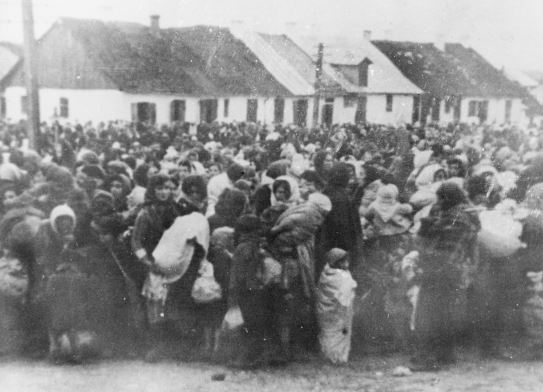
For three decades, the history of Polish Jews and the questions of the Shoah perpetrated by the German state on occupied Polish lands in particular have been among the most frequently discussed topics in Polish and international academic milieux. For a number of years now researchers have been giving unusually intensive attention to describing the Shoah in the Polish countryside as part of Jewish studies. Unfortunately, a range of publications present Polish-Jewish relations in the Polish countryside in a way that is far from objective, failing to take account of the context and reality of the time of occupation (glossing over German causative power), and frequently with acute and numerous flaws in the scientific methodology of research. The image of the Polish countryside in the context of the Polish-Jewish relations during the Second World War is shaped through the lens of contemporary phenomena of a pathological nature, such as denunciations, manhunts, and murders.
Yet, as all academic publications recognise, apart from the metropolitan cities like Cracow and Warsaw, most Jews went into hiding and tried to save themselves in the rural areas of Poland, and Poles, and thousands of people living in the countryside were honoured with the title of Righteous Among the Nations. That is why the IPN's educational supplement tackling the issues of helping Jews is specifically dedicated to the contribution of the Polish countryside in the rescue work.
It is hard to be certain how many people living in the rural areas of Poland were involved in that aid, nevertheless you see all the social strata of the occupied countryside among those saving Jews: landed gentry, clergy, but primarily peasants. Academic research confirms that there was a will to help Jews in the countryside, and to break it the German authorities resorted to terror and the death penalty for even the smallest gestures of kindness (even trade!) towards Jews. And it was this countryside that incurred the worst personal and material losses throughsaving Jews. The threat, incidentally, was not only the occupiers since people also feared informers, blackmailers, and the ordinary criminal fraternity found among the Polish population.
Most cases of aid provided to Jews in the villages occurred after the Germans initiated the mass genocide of Jews in 1942 and continued until the arrival of the Red Army. Forms of aid varied, beginning with offering temporary provision of lodging, sharing food, and ending with many months of permanent hiding, often co-financed by the Jews being saved. And precisely that occasional, one-off aid, especially the provision of food, was the most widespread, yet also for that reason it is the least perceptible in the sources, and we will perhaps never learn its extent. In the case of the Catholic clergy, the fundamental activity consisted in providing the Jews with false Christian birth certificates, which made it possible for them to start the challenge of surviving on the so-called Aryan side.
One can be more precise when addressing the continuous forms of aid. Jews were “kept” in all imaginable locations: in attics and in the cellars of houses, sheds, barns and pigsties, hidden under floors, in bunkers made for that purpose close to houses, in nearby woods but also in the manor houses of the landed gentry, and in convents. There were also hiding places arranged in church crypts and vicarages.
The publications available argue that most people living in the countryside who saved Jews worked independently, without connection to clandestine structures, and the main motivation behind the heroic attitude was the general humanitarianism, which the Germans did not manage to suppress.